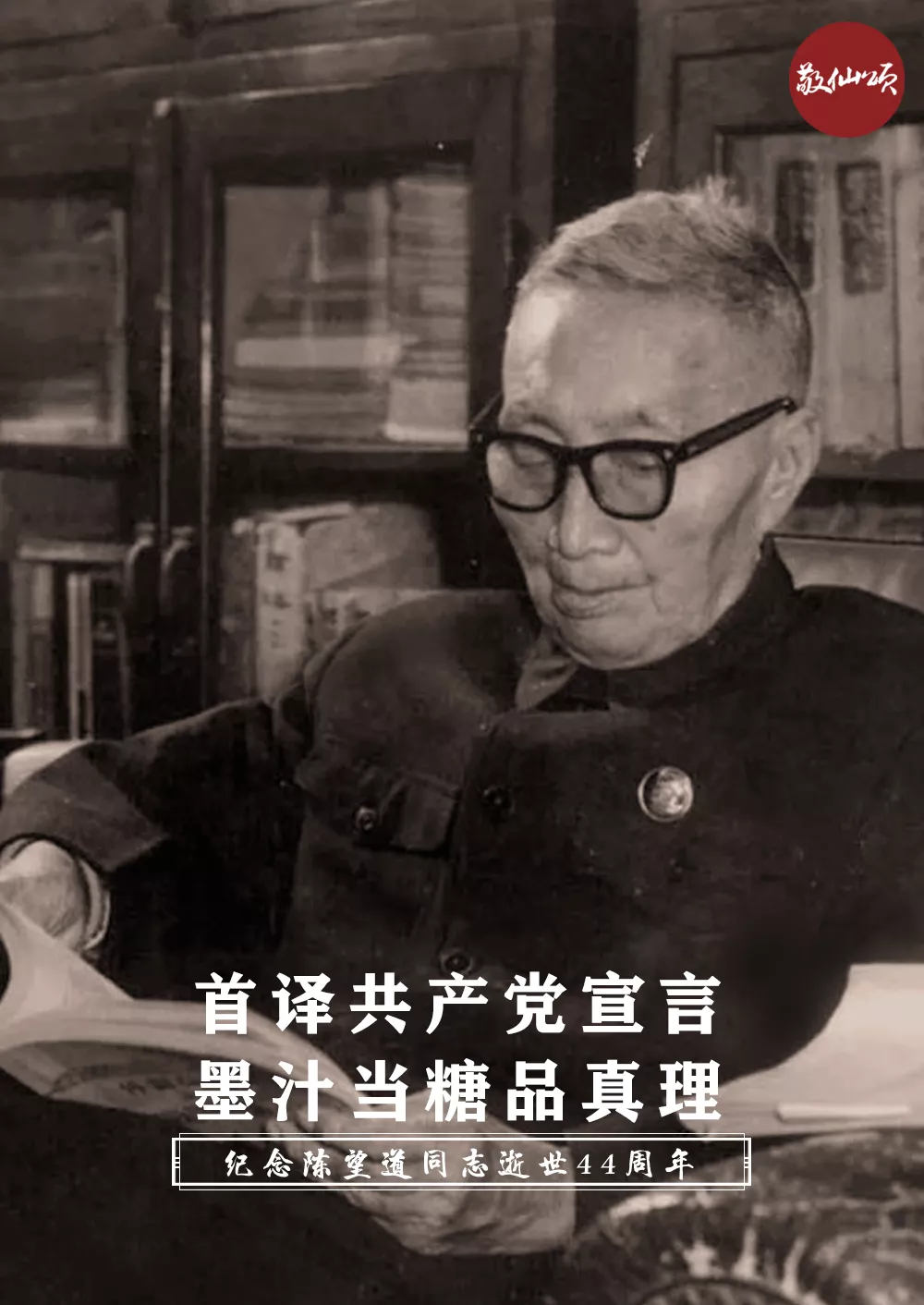
The taste of truth is very sweet
Biography
Chen Wangdao (January 18, 1891 – October 29, 1977), male, Han ethnicity, member of the Communist Party of China, a native of Yiwu, Jinhua, Zhejiang.
He studied at Waseda University in Japan, returned to China to teach at Zhejiang First Normal School, and then returned to his hometown to translate the Communist Manifesto.
After the founding of the Communist Party of China, he served as secretary of the Shanghai Local Committee of the Communist Party of China, but later retired from the party because of conflicts with Chen Duxiu. Since then, he has taught at Fudan University and is a well-known linguist and educator.
After 1949, Chen Wangdao successively served as a member of the Standing Committee of the National People's Congress, a member of the Standing Committee of the National Committee of the Chinese People's Political Consultative Conference, a vice chairman of the Central Committee of the China Democratic League, and a member of the Department of Philosophy and Social Sciences of the Chinese Academy of Sciences.
He is a well-known thinker, social activist, educator and language writer in modern China, and an active promoter of the May Fourth New Culture Movement.
He died in Shanghai on October 29, 1977.
First translation of the Manifesto
Proficient in Japanese and English, with a deep foundation in Chinese, and a solid foundation in Marxist theory, these three indispensable conditions make Chen Wangdao the best candidate for the translator of the Chinese translation of the Communist Manifesto.
In early 1920, Chen Wangdao, who was both excited and proud, returned to his hometown with British and Japanese versions of the Communist Manifesto.
To avoid distractions, he moved to the wood-room to live alone, with two stools on a large plank, which served as a table during the day and as a bed at night.
The wood house in disrepair leaked wind and rain, and the biting cold wind of the night ran in through the cracks, freezing Chen Wangdao's hands and feet cold, and he rubbed his hands while rubbing his hands while popping out a few English words from time to time.
A dim oil lamp, the English-Chinese Dictionary, the Japanese-Chinese Dictionary, and a stack of scratch paper were all spread out on the table.
In such an environment, Chen Wangdao's task was to study Marxism in the book day and night, carefully and repeatedly Chinese the words in the version, and strive to be appropriate and accurate.
Working day and night made Chen Wangdao lose a circle of weight, and Chen's mother was distressed that her son sent rice dumplings and brown sugar, and then quietly left.
But when Mother Chen went in to clean up the dishes, she was startled by Chen Wangdao's black mouth.
It turned out that Chen Wangdao, who was fully engrossed, mistakenly regarded the ink as brown sugar, dipped in ink and ate zongzi with a mouth full of ink, and he didn't know it at all. When his mother asked him if he was sweet enough, he also said that he was sweet enough.
In Chen Wangdao's heart, this can be described as "the taste of truth is very sweet."
There are no reference materials, but also pay attention to easy to understand, Chen Wangdao used five times more time than the usual translation of books, the wonderful vocabulary that can be seen everywhere, put a hundred years later is also very easy to understand.
Chen Wangdao's painstaking efforts for more than two months, the translation of nearly 20,000 words of the "Communist Manifesto" was completed, and China also has its own "Communist Manifesto".
The First Chinese translation of the Communist Manifesto was published in Shanghai, and less than a year later, the Chinese Communist Party was born in Shanghai, and he became one of the first eight members of the Communist Party group.
It can be said that this "Communist Manifesto" translated by Chen Wangdao opened the door of the Communist Party of China.
Groundbreaking
The publication of the Communist Manifesto was a "groundbreaking ground" for communists, and it gave hope to young people who were struggling to think of a way out of China, and countless democratic fighters and reformists turned into communist fighters.
Chairman Mao Zedong said that he had read the Communist Manifesto no less than a hundred times, and each time he had new gains.
Premier Zhou Enlai frankly said at the 1949 Literary Congress: "We are all taught by Chen Wangdao. ”
Chairman Deng Xiaoping said that his introductory teachers were the Communist Manifesto and the Communist ABC.
It is this book that has changed the direction of China's history and opened a new page in China.
Without it, China might not be able to resist the turmoil of the Republic of China, the depths of the anti-Japanese struggle, and the struggle between the Kuomintang and the Communist Party.
The Communist Manifesto has taken us through a hundred years, and it will also lead us to a more prosperous and brilliant century.
Here, Jing Xian song remembers Mr. Chen Wangdao, the Communist Manifesto will always exist, the Communist Party will always exist, and we believe in the light of progress brought by Mr. Chen.